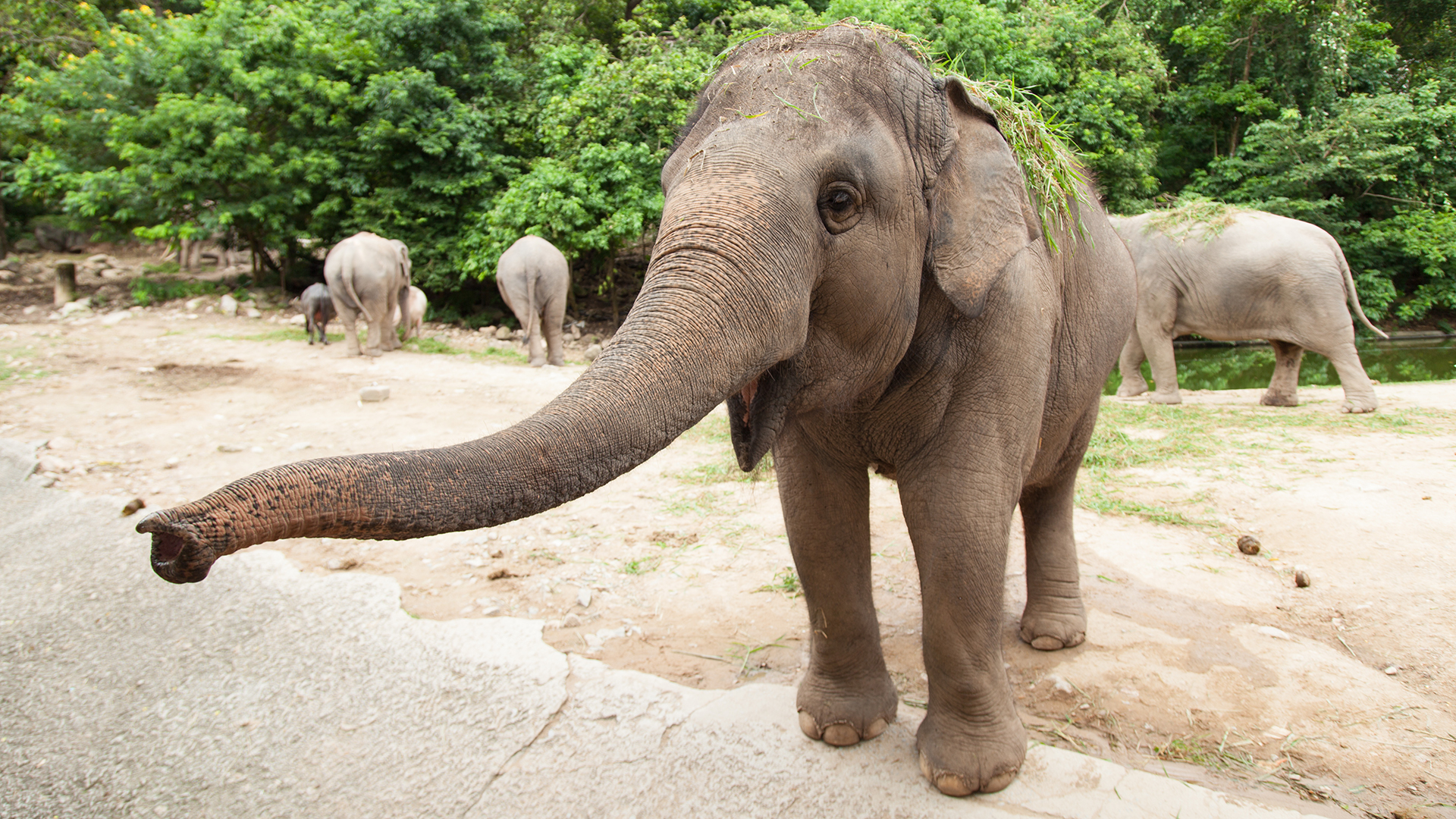Elephants in China got drunk and passed out in a garden
The herd dug up and drained vats of corn wine in a village in Yunnan Province.

Get the world’s most fascinating discoveries delivered straight to your inbox.
You are now subscribed
Your newsletter sign-up was successful
Want to add more newsletters?

Delivered Daily
Daily Newsletter
Sign up for the latest discoveries, groundbreaking research and fascinating breakthroughs that impact you and the wider world direct to your inbox.

Once a week
Life's Little Mysteries
Feed your curiosity with an exclusive mystery every week, solved with science and delivered direct to your inbox before it's seen anywhere else.

Once a week
How It Works
Sign up to our free science & technology newsletter for your weekly fix of fascinating articles, quick quizzes, amazing images, and more

Delivered daily
Space.com Newsletter
Breaking space news, the latest updates on rocket launches, skywatching events and more!

Once a month
Watch This Space
Sign up to our monthly entertainment newsletter to keep up with all our coverage of the latest sci-fi and space movies, tv shows, games and books.

Once a week
Night Sky This Week
Discover this week's must-see night sky events, moon phases, and stunning astrophotos. Sign up for our skywatching newsletter and explore the universe with us!
Join the club
Get full access to premium articles, exclusive features and a growing list of member rewards.
UPDATED on May 8 -- Editor’s note: Live Science has found that the elephants discussed in this article were not drunk; they were just resting. Read more about where the story came from and how it went viral.
Tweets mentioned in the article that describe the "drunk" elephants have since been deleted and are no longer available.
Large public gatherings are currently prohibited in many places to prevent the spread of the new coronavirus, but that didn’t stop a group of Asian elephants from partying in a field in Yunnan Province in China, where they found and drained vats of corn wine.
Two elephants drank so much wine that they passed out in a tea garden.
A photo of the inebriated elephants — lying curled up back to back on a dirt bed amid the greenery — went viral after it was shared on Twitter on March 18 by Parveen Kaswan, a conservationist and an Indian Forest Service officer. Kaswan mentioned in the tweet that wild elephants have a taste for booze, quipping that these particular pachyderms had turned to alcohol "to sanitize [their] trunks," and were sleeping off the aftermath.
Related: Incredible photos capture last glimpse of long-tusked 'elephant queen'
Asian elephants (Elephas maximus indicus) inhabit grasslands and forest habitats across countries in southern Asia, and there are estimated to be fewer than 50,000 of them in the wild, the World Wildlife Fund says.
Get the world’s most fascinating discoveries delivered straight to your inbox.
But in China there are only 250 of these elephants left, and they face the looming threat of local extinction, Kaswan tweeted.
In another tweet, Kaswan posted a photo of the elephant herd "when they were all sober," clustered together amid rows of crops. In forest regions where the elephants live, locals are aware of the animals' interest in human-made alcohol, Kaswan said. But even when people bury their liquor, "somehow elephants find it," Kaswan wrote in the tweet.
Elephants will even "mark" locations where they have previously found alcohol and come back later to see if there's more, Kaswan added.
When they were all sober. In tribal belts people hide country made alcohol but somehow elephants find it. They mark the houses also where they found that last time. If they see drunk people they get irritated also, since it was not shared with them. All credits in pics. 11/3/20 pic.twitter.com/ESYtPsrd68March 18, 2020
Persistent rumors and anecdotes had long suggested that African elephants regularly become drunk on fermented marula fruit, though scientists determined more than a decade ago that this was likely a myth. An animal the size of an elephant — weighing more than 6,600 lbs. (3,000 kilograms) — would have to consume 400 times the amount of fruit in its normal diet and not drink any water for the alcohol to make it intoxicated, researchers reported in 2006 in the journal Physiological and Biochemical Zoology.
However, elephants that come across caches of liquor or wine might guzzle the beverage for its sweet taste, which could lead to drunkenness, Shermin de Silva, a cofounder of Sri Lanka's Elephant Forest and Environmental Trust, previously told Live Science.
Other types of wild creatures have demonstrated the effects of consuming too much alcohol. In 2011, a moose in Sweden got drunk after eating fermented apples and wound up entangled in a tree, according to the Smithsonian. White-tailed deer often browse on fermented apples in orchards, making them "stumble-y" and "sleepy," Don Moore, associate director of the Smithsonian National Zoo in Washington, D.C., told National Geographic.
And chimpanzees, our closest living primate relatives, appear to enjoy the taste of alcohol, soaking up fermenting palm sap with leaves and then squeezing the booze into their mouths, Live Science previously reported.
But there's one animal that imbibes more than any other — the Malaysian pen-tailed shrew. The shrews' diet consists entirely of fermented nectar that is about 3.8% alcohol, suggesting that the shrews would be perpetually drunk. However, despite the nectar's high alcohol content, the shrews have evolved to metabolize it so efficiently that they don't become inebriated at all, scientists discovered in 2008.
- In photos: The most surprising elephant relatives on Earth
- 101 animal shots you'll go wild over
- Photos: Seized elephant ivory reveals how massive cartels operate
Originally published on Live Science.
OFFER: Save at least 53% with our latest magazine deal!
With impressive cutaway illustrations that show how things function, and mindblowing photography of the world’s most inspiring spectacles, How It Works represents the pinnacle of engaging, factual fun for a mainstream audience keen to keep up with the latest tech and the most impressive phenomena on the planet and beyond. Written and presented in a style that makes even the most complex subjects interesting and easy to understand, How It Works is enjoyed by readers of all ages.

Mindy Weisberger is a science journalist and author of "Rise of the Zombie Bugs: The Surprising Science of Parasitic Mind-Control" (Hopkins Press). She formerly edited for Scholastic and was a channel editor and senior writer for Live Science. She has reported on general science, covering climate change, paleontology, biology and space. Mindy studied film at Columbia University; prior to LS, she produced, wrote and directed media for the American Museum of Natural History in NYC. Her videos about dinosaurs, astrophysics, biodiversity and evolution appear in museums and science centers worldwide, earning awards such as the CINE Golden Eagle and the Communicator Award of Excellence. Her writing has also appeared in Scientific American, The Washington Post, How It Works Magazine and CNN.
 Live Science Plus
Live Science Plus











